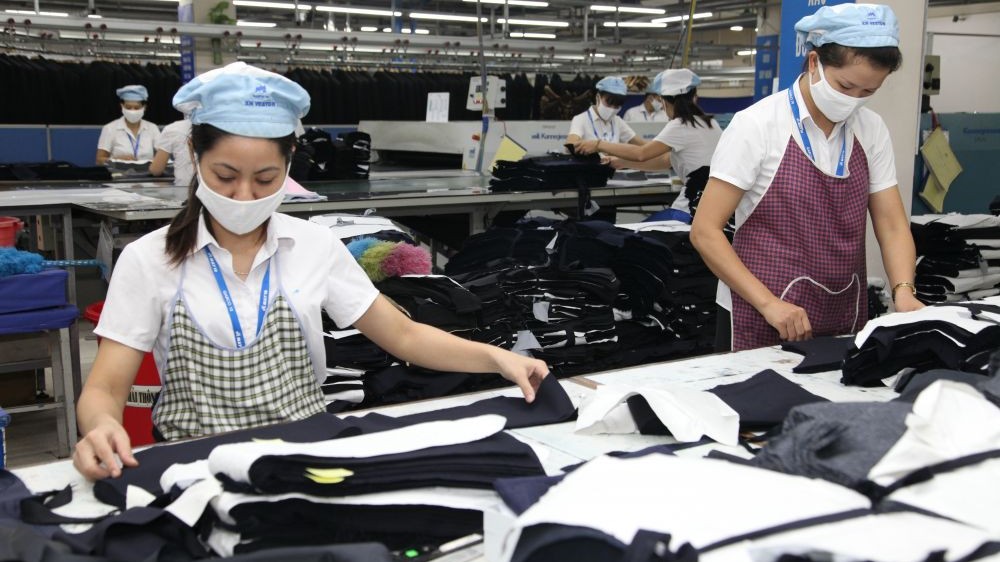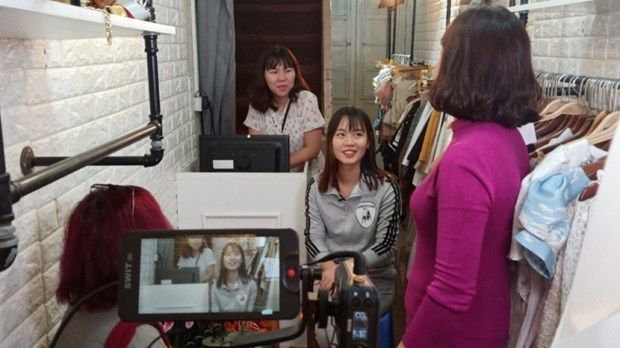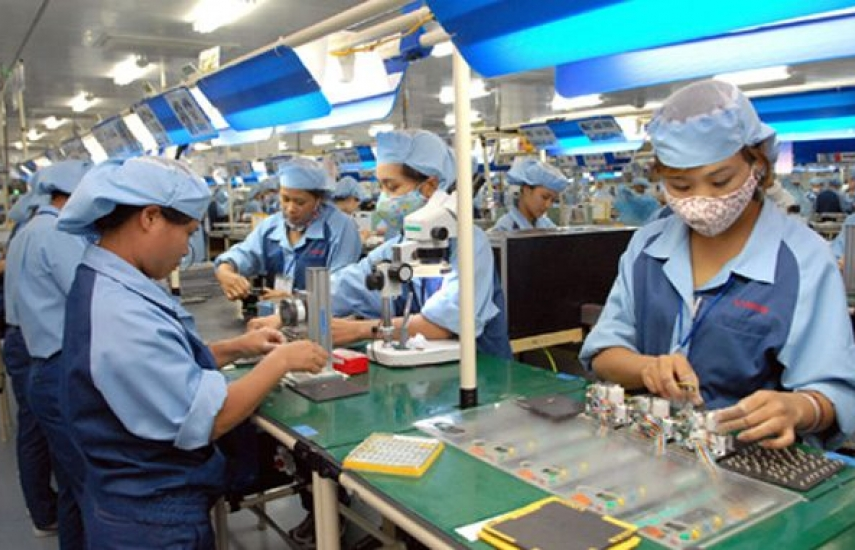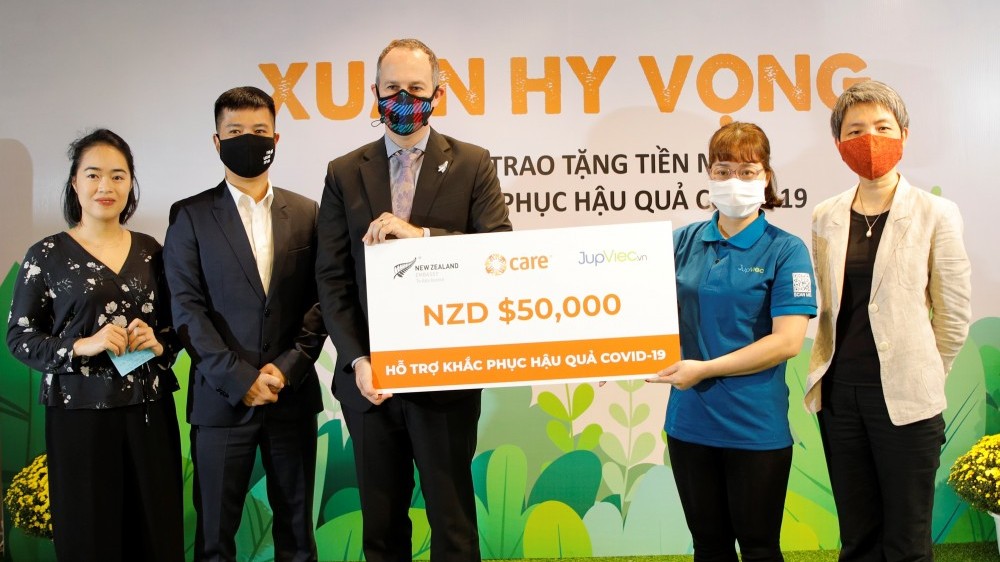
Highlight the role of informal networks in the waste management systems in Viet Nam
Latest
The workshop highlighted diverse case studies, researches and innovations from contributing to recognising the roles and contributions of informal waste workers in the waste management value chains.
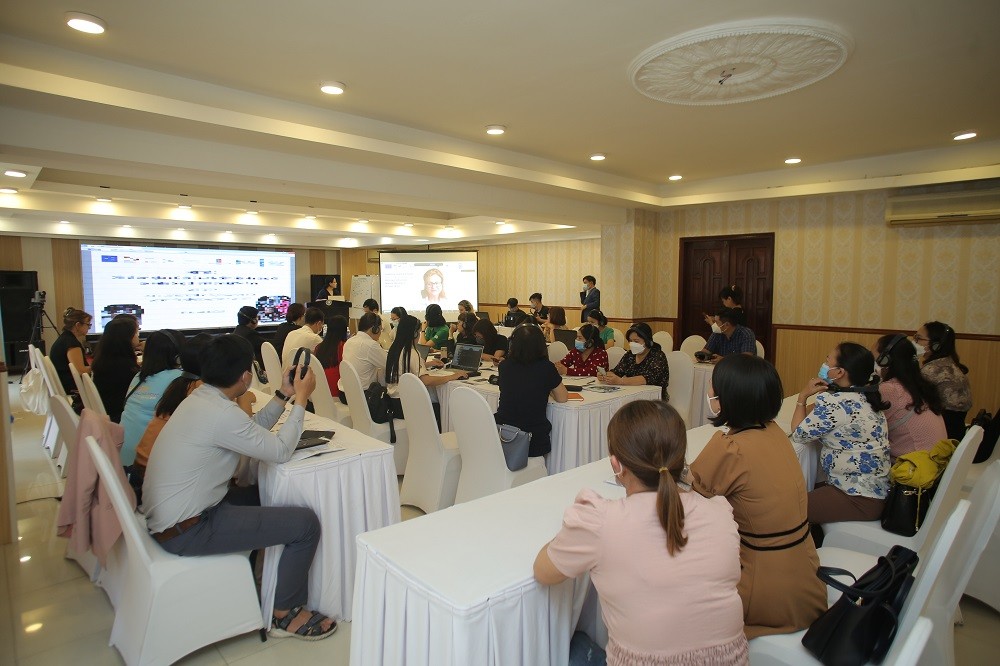 |
| The EU-BMZ 'Rethinking Plastics' project and UNDP Viet Nam co-hosted a workshop on “Lessons Learned from Pilot Projects Working with Women Informal Waste Workers in Viet Nam.” (Photo: UNDP) |
During the workshop, the pilot activities in Quy Nhon, Ho Chi Minh City, Ha Long City, were introduced jointly with the non-profit organizations in charge of their implementation. They focused on strengthening the livelihoods of informal waste workers and supporting their recognition and/or inclusion in the waste management systems.
Attending the online and offline workshop in Quy Nhon were representatives from the Ministry of Natural Resources and Environment, the Delegation of the European Union to Vietnam, the Norwegian Embassy in Viet Nam, The Netherlands Embassy, the Department of Natural Resources and Environment and the People’s Committee of Quy Nhon, Vietnamese and international non-governmental organizations, the Women’s Union of Quang Ninh, Binh Dinh, Binh Thuan and Da Nang, and the informal waste workers.
On March 2nd, 2022, at the UN Environment Assembly, the world's ministers of the environment endorsed critical resolutions that established a foundation for introducing an international legally binding agreement to end plastic pollution. The roles of the informal waste workers have been recognised in an environmental resolution.
In Viet Nam, the government issued Decree No. 08/2022/ND-CP on January 10th, 2022, comprising chapters on waste management, Extended Producers Responsibility (EPR) and incorporating the roadmap for the circular economy. The introduction of a mechanism in the Law will reduce environmental leakages and generate additional financial flows for increased collection and recycling of packaging. The EPR may create opportunities and pose challenges for the collectors and aggregators.
The informal sector plays a pivotal role in Viet Nam's solid waste management system as over 30% of the waste is estimated to be collected through this channel. Knowledge of the role and the needs of informal networks in the waste management systems in Viet Nam is needed to prepare for their potential integration into the evolving national and international policy frameworks.
Speaking at the workshop, Ms. Caitlin Wiesen, UNDP Resident Representative in Viet Nam, highlighted “Recognizing, collaborating, supporting, and ultimately enhancing the roles and contributions of informal waste workers is key to strengthening local waste management systems. Combined with awareness campaigns and effective community mobilization, they are an essential part of the transition towards green and inclusive cities. To set a transition to a Just Circular Economy model in motion, UNDP will continue our work towards empowering women and generating a green, inclusive economic rebound.”
She added that “Waste and plastic are, in fact, economic resources. We need to segregate, collect, and recycle our waste to fast-track the development of markets for secondary materials that are localized and inclusive of women workers at all stages.”
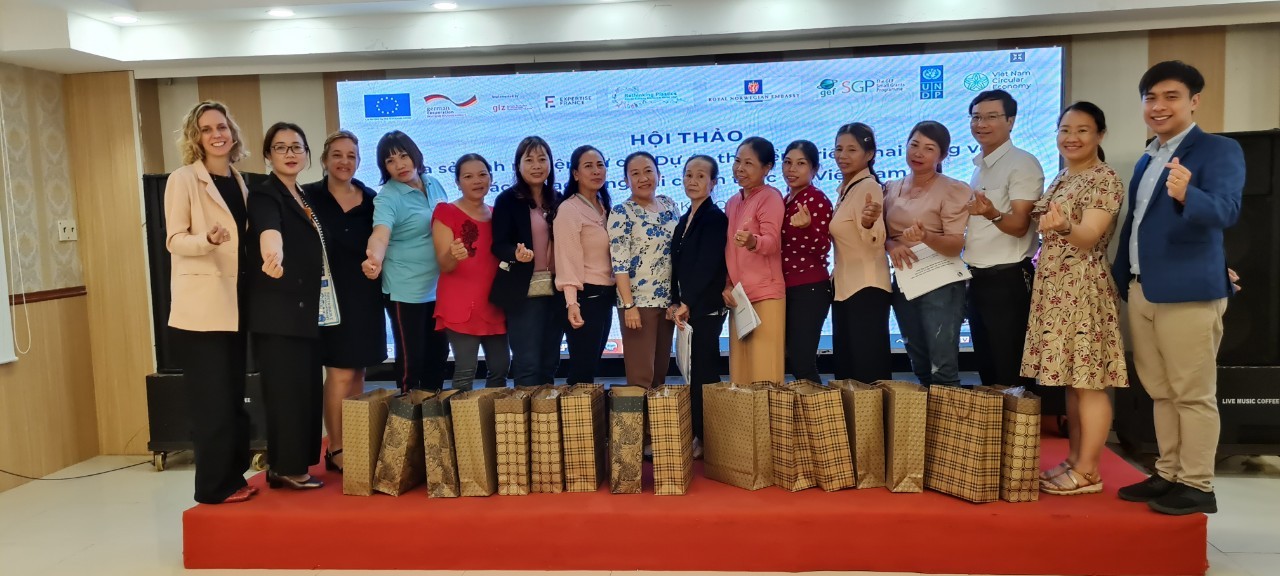 |
| The roles of the informal waste workers have been recognised in an environmental resolution. (Photo: UNDP) |
Mr. Ngo Hoang Nam, Quy Nhon People’s Committee said “It is an important workshop for us. We hope to receive many valuable ideas in waste management for practical applications and sound, creative suggestions for Quy Nhon city to implement the Law on Environmental Protection.”
According to Mrs. Fanny Quertamp, Senior Advisor Vietnam for Rethinking Plastics project, the mandatory EPR scheme for packaging which will be in force in 2024 is a major step generating opportunities and challenges for the waste collectors. The traceability of the packaging value chain that will be required will impact the current organization of the waste management and is an opportunity to integrate and recognize the collectors as contributors to the circular economy.
“I am very happy to join this workshop. I find this job helps me feed my family and contributes to keeping the environment clean. I look forward to participating in more workshops and activities. I will continue this useful work,” said Ms. Le Thi Phu, Di An, Binh Duong province.
At the workshop, mechanisms were collectively discussed to enhance the systematic collection of grassroots initiatives and strengthen their uptake at the policy level, and collaborate with other organisations to enhance the livelihoods of waste workers and recognize their critical roles in the transition towards a CE in Viet Nam.




